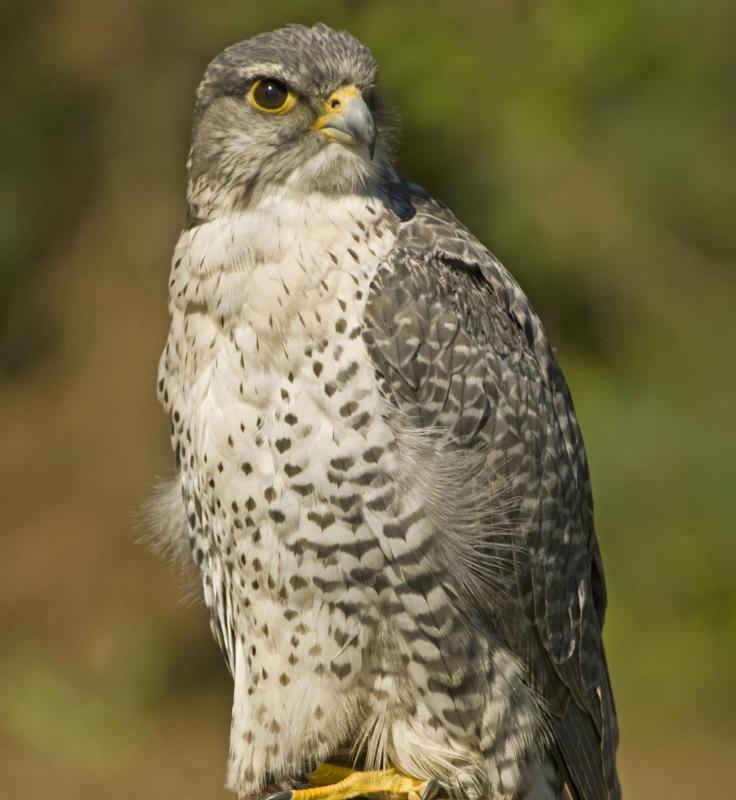At WiseGEEK, we're committed to delivering accurate, trustworthy information. Our expert-authored content is rigorously fact-checked and sourced from credible authorities. Discover how we uphold the highest standards in providing you with reliable knowledge.
What Are the Different Types of Wildlife Conservation Careers?
Wildlife conservation employees develop and maintain safe habitats for wildlife while preserving dwindling animal species. Individuals interested in wildlife conservation careers can often find employment at animal preservation sites and organizations. For instance, a wildlife conservationist could work as a zoo associate or curator of animals, or inside courtrooms or offices as a litigation director or regional outreach coordinator.
A zoo associate, one of the better-known wildlife conservation careers, teaches the public about the animals seen on display at a zoo. The associate provides the public with information about the animals' population statistics, natural habitats and feeding habits. An associate also ensures that exhibits are properly maintained for both guests and animals by making sure they are clean, secure and safe. Other duties of an associate include observing animals for illnesses, enforcing the rules of the zoo and assisting in the setting up of exhibits. To work in this position, a zoo associate must have an outgoing personality and fundamental experience in proper customer service; some positions might also require related education.

Those interested in wildlife conservation careers might also consider seeking employment as a curator of animals. Duties of a curator include managing the grounds of a zoo, plant collections and animal exhibits. A curator also directs each conservation project as well as writes scientific research papers that concern the captivity of the exotic animals. Other responsibilities might include records oversight, humane programs and specimen acquisition. To become employed as a curator, an individual typically must have an advanced degree in a related field.

A litigation director supports animal conservation advocacy campaigns and usually must have at least 10 years of experience in conservation litigation and a law degree to qualify for the position. The director addresses global warming issues, safeguards nature for people and animals, and builds cases to try to advance the industry's conservation efforts. A conservation litigation director might also establish outreach programs with other conservation groups and recruit other attorneys for both fundraising efforts and donations.

One of the more public wildlife conservation careers is a regional outreach coordinator. Someone working in this position is involved with such conservation efforts as combating global warming and developing campaigns to preserve wildlife. The coordinator often engages in planning advocacy campaigns toward wildlife restoration and environmental conservation, creating media outreach and lobbying elected officials. To work in this position, a college degree and five years of activist recruitment, media outreach or other related experience typically is required. A successful regional outreach coordinator might also have strong writing and public speaking abilities.
AS FEATURED ON:
AS FEATURED ON:














Discussion Comments
@clintflint - You can also get a taste for different types of conservation at university by taking different courses in the subject. A good university will have students out in the field and experiencing the work directly as well as learning the theory.
@Fa5t3r - I wouldn't say no to working in a zoo, but I think people who really want to get into grass roots conservation would be better off trying to volunteer in the field. I know in my area they often run volunteer days where people can help plant trees, harvest wild seed, and remove invasive plants from local forests.
There are also those travel deals where you can go overseas and volunteer with various types of NGOs including ones involved in conservation.
If you just know you want to be involved, but aren't sure exactly what you want to do, it's a good idea to try and few things and see what you're good at and what you're passionate about. Conservation is a very tough, heart-breaking job at times, especially when working with endangered animals and if you don't have a fierce passion for it, you won't last.
If you're interested in getting into this kind of work, there are plenty of places where you can volunteer to get a taste of what it's like. Even zoos and wildlife parks will often take volunteers from the public to help and they are usually very involved in conservation work.
If you want to eventually work in conservation it will help to have a lot of hours of volunteer work on your resume anyway, as competition can often be fierce, especially if you want to work with animals.
Post your comments